During the resumed session of the 5th Intergovernmental Negotiating Committee (INC-5.2) for the International Plastics Treaty held in August in Geneva, Switzerland, the United Nations Conference on Trade and Development (UNCTAD), which had co-hosted an event with ASEZ, highly praised ASEZ’s achievements and potential. Impressed by their activities, UNCTAD proposed another collaboration. As a result, ASEZ received an official invitation to the 5th UNCTAD Youth Forum, held concurrently with the 16th United Nations Conference on Trade and Development (UNCTAD16) at the UN Headquarters in Geneva in October. The connection established during INC-5.2 naturally expanded into participation in another official UN international event.
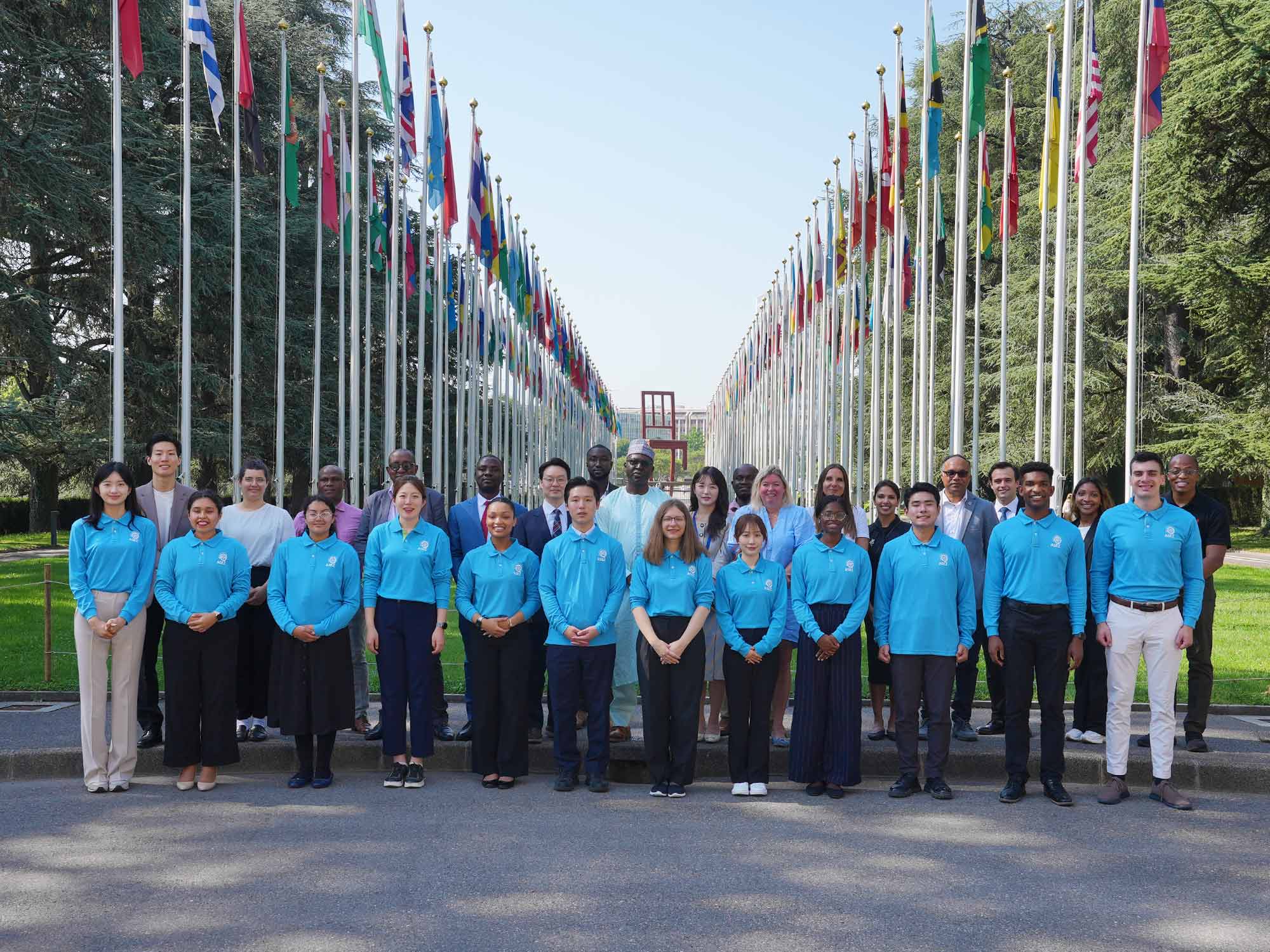
The United Nations Conference on Trade and Development (UNCTAD) is a UN body that supports sustainable development—especially in developing countries—in areas such as trade, investment, finance, and the digital economy. It serves as a key platform for discussing the global economic order. The UNCTAD General Assembly (UNCTAD16), held every four years, is a ministerial-level meeting where all 195 member states gather to address major global issues, including the world economy, trade, investment, debt, and digital transformation. During the conference, member states determine the policy directions and mandates that UNCTAD will pursue over the next four years. The 16th session, held in 2025, took place from October 20 to 23 at the Palais des Nations in Geneva. It was conducted under the theme: “Shaping the future: Driving economic transformation for equitable, inclusive and sustainable development.”
The 5th UNCTAD Youth Forum, held alongside the conference, is an official youth platform designed for young people aged 18 to 30 to share their perspectives on issues such as trade and development, the digital economy, and sustainability—and to directly participate in the policy discussion process. The forum ran concurrently with the UN conference and facilitated intergenerational dialogue with representatives from governments, international organizations, and the private sector. Discussions centered on topics including youth innovation, inclusive growth, employment in the context of climate change and digital transformation, and youth-inclusive finance.
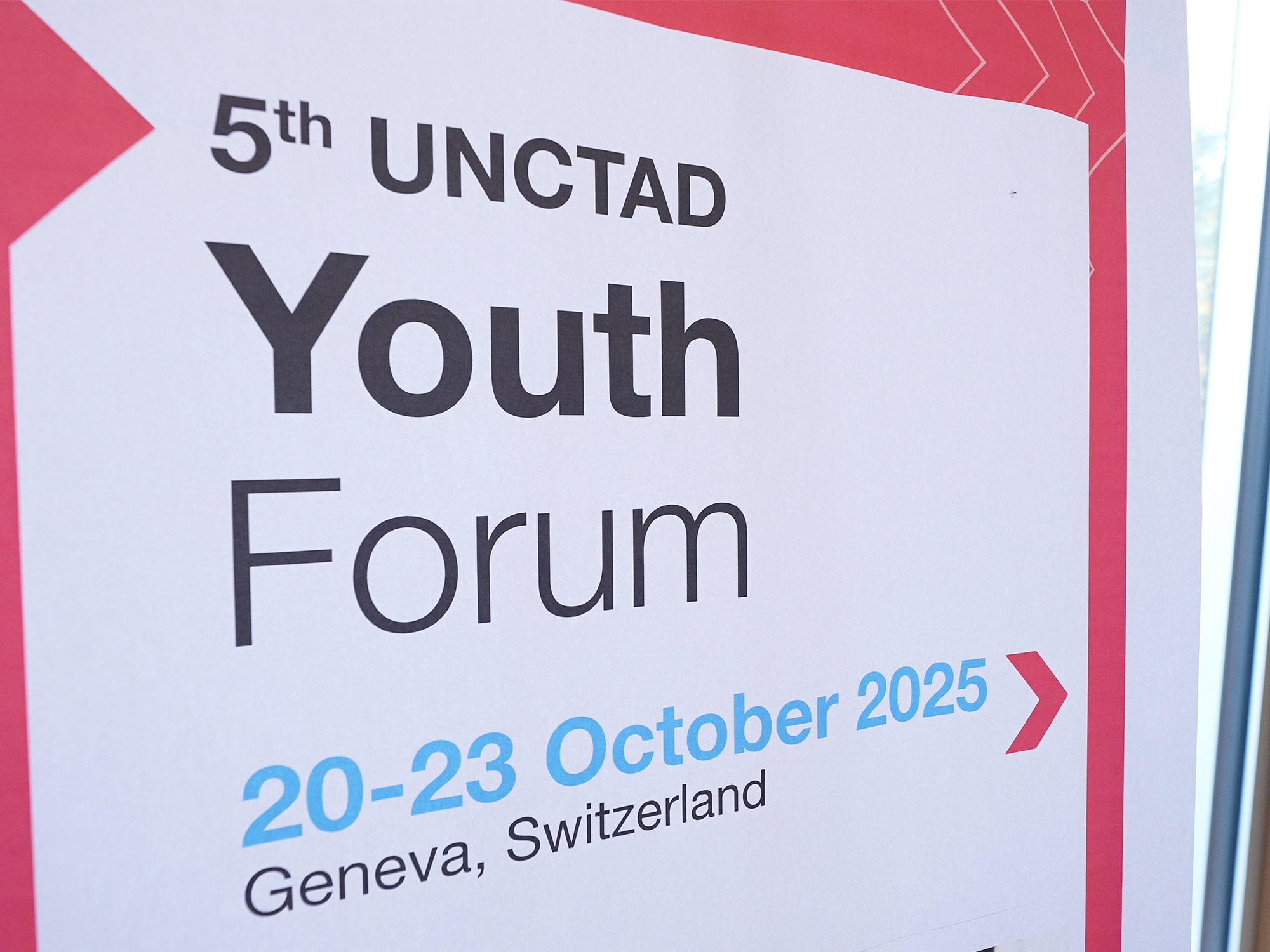
Following UNCTAD’s official invitation, ASEZ members attended the 5th UNCTAD Youth Forum plenary session on October 20 under the name “ASEZ.” During the opening session, at the request of the organizers, an ASEZ member currently studying at Harvard University delivered an official presentation introducing the organization. The presentation highlighted ASEZ’s vision as a global student volunteer group active on campuses in 175 countries, as well as its four key areas of activity—environmental protection, crime prevention, community service, and emergency relief. The speaker also shared ASEZ’s major initiatives, including the Zero Plastic Campaign, climate action projects, and volunteer programs carried out across various campuses worldwide. The presentation emphasized that university students are not merely learning theoretically but are taking practical action to create real change.
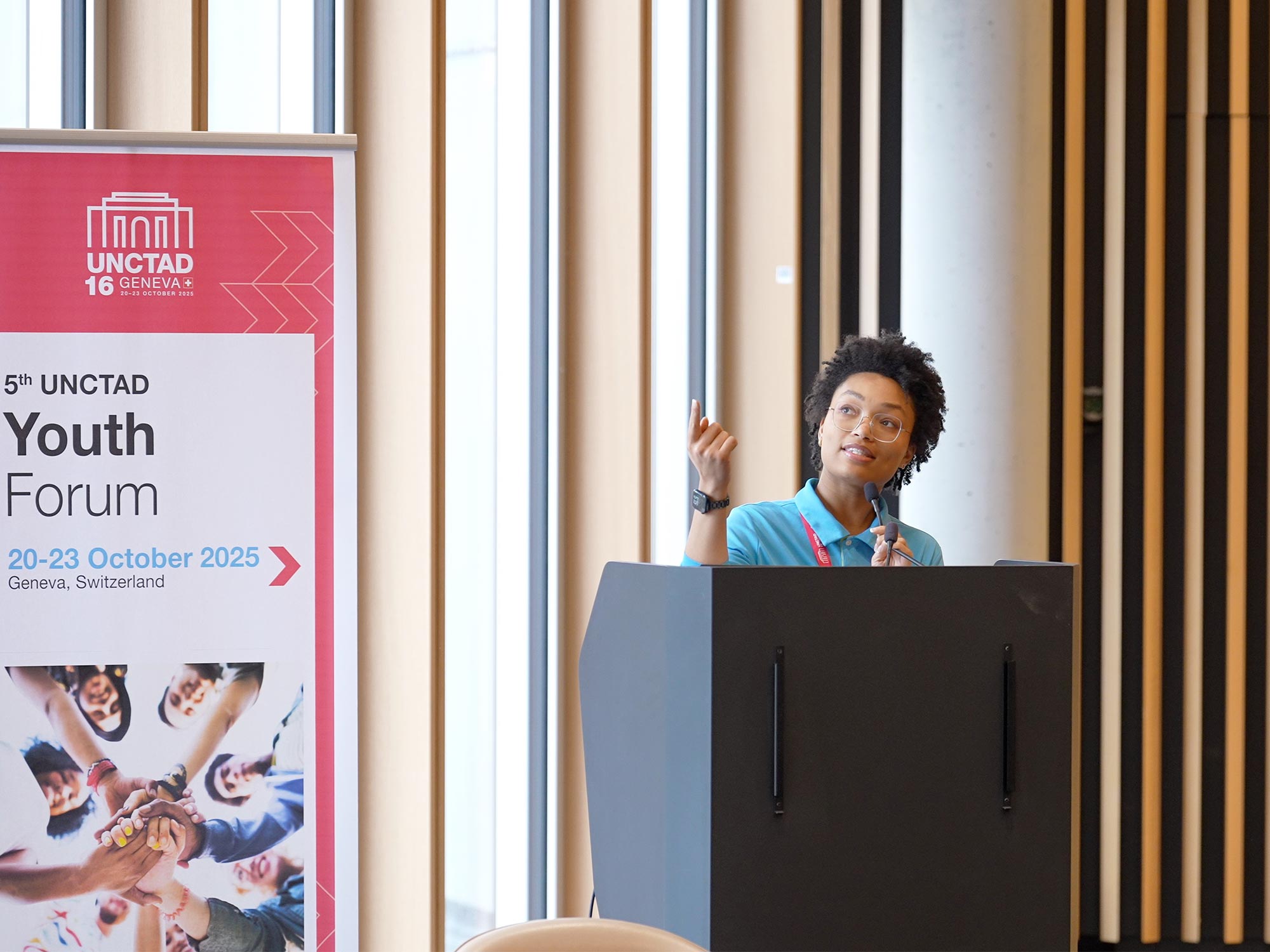
Another ASEZ member, also a student at Harvard University, participated in a panel discussion on the theme “ASEZ’s Leadership of Serving with a Mother’s Heart.” In this session, the speaker explained the value of youth leadership grounded not in competition and conflict, but in consideration, inclusiveness, responsibility, and care. They presented concrete examples of ASEZ’s on-site initiatives, including efforts to address plastic pollution during INC-5.2, Zero Plastic campaigns held on university campuses around the world, crime-prevention and character-education programs, and volunteer activities supporting vulnerable groups. The message—“Small actions together can change the world”—left a strong impression on both the panel and the audience.
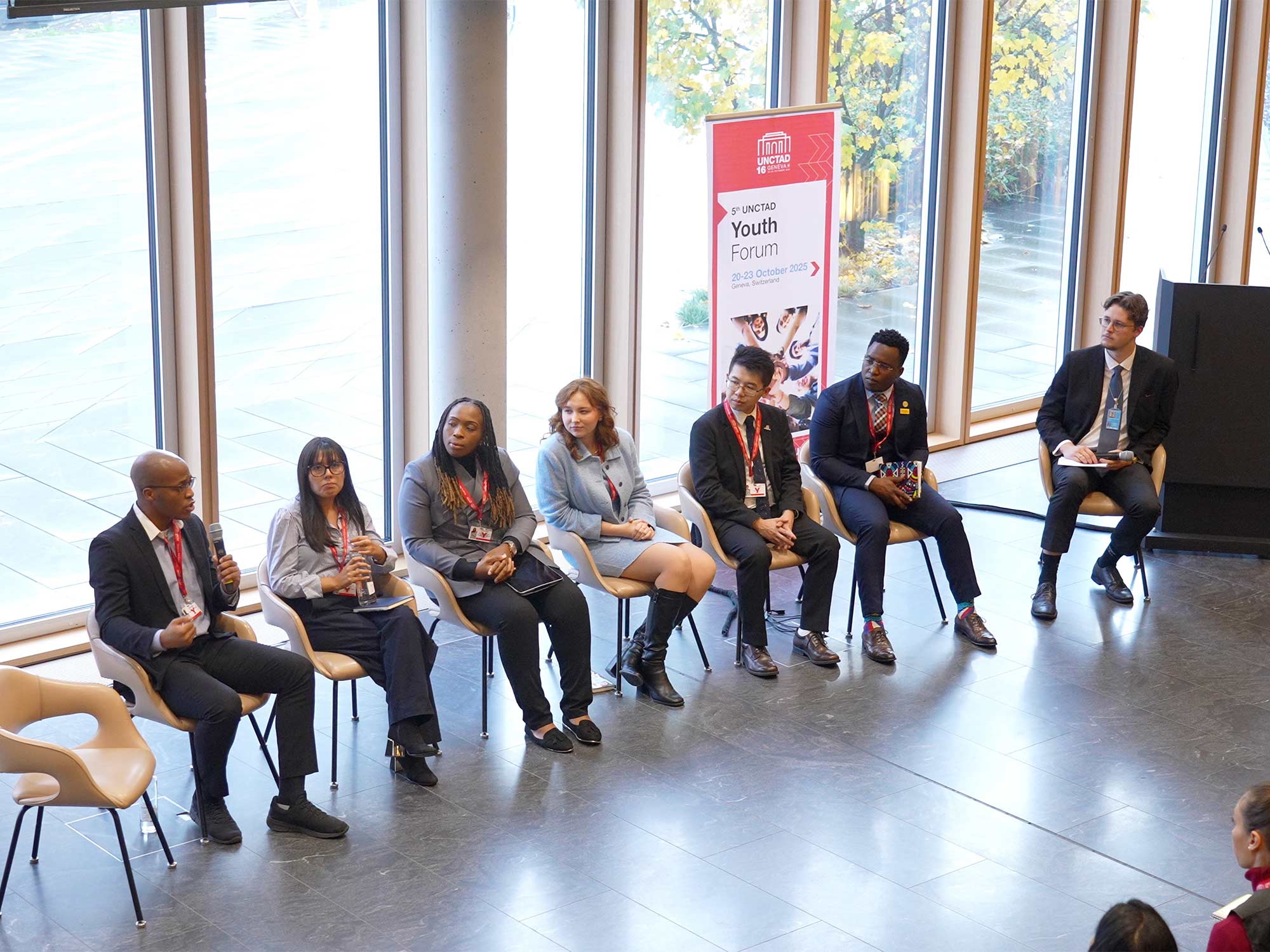
During UNCTAD16, ASEZ held meetings with 13 high-level figures, including UNCTAD Secretary-General Rebeca Grynspan, Deputy Secretary-General Pedro M. Moreno, UNCTAD Directors Paul Akiwumi and Luz María de la Mora, as well as ministers and vice-ministers from several countries—including Panama and the Republic of Korea’s Ministry of Foreign Affairs—along with senior officials from international organizations. In these meetings, ASEZ discussed a wide range of global issues such as plastic pollution and the climate crisis, and explored how university students can contribute to national policymaking and community-level transformation. They shared directions for collaboration focused on education, practical action, and strategic partnerships as effective ways for young adults to drive meaningful change across societies.
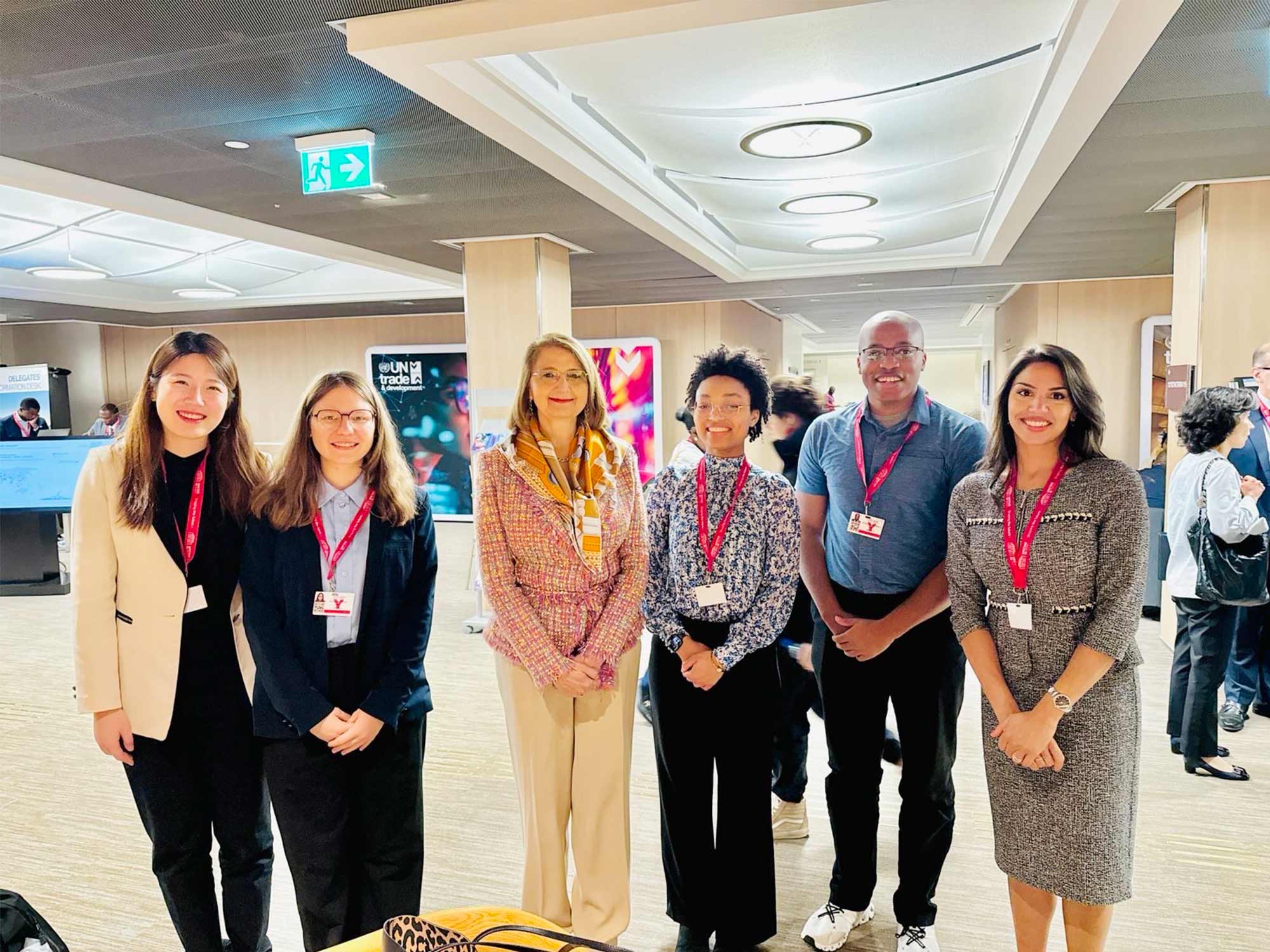
ASEZ also presented letters of appreciation to H.E. Dr. Mohammadou Kah, the UNCTAD Vice President representing Africa and Permanent Representative of The Gambia to the UN in Geneva—who had promised further cooperation during INC-5.2 in August, saying, “The world needs ASEZ’s leadership”—as well as to the coordinator of the UNCTAD Youth Network.
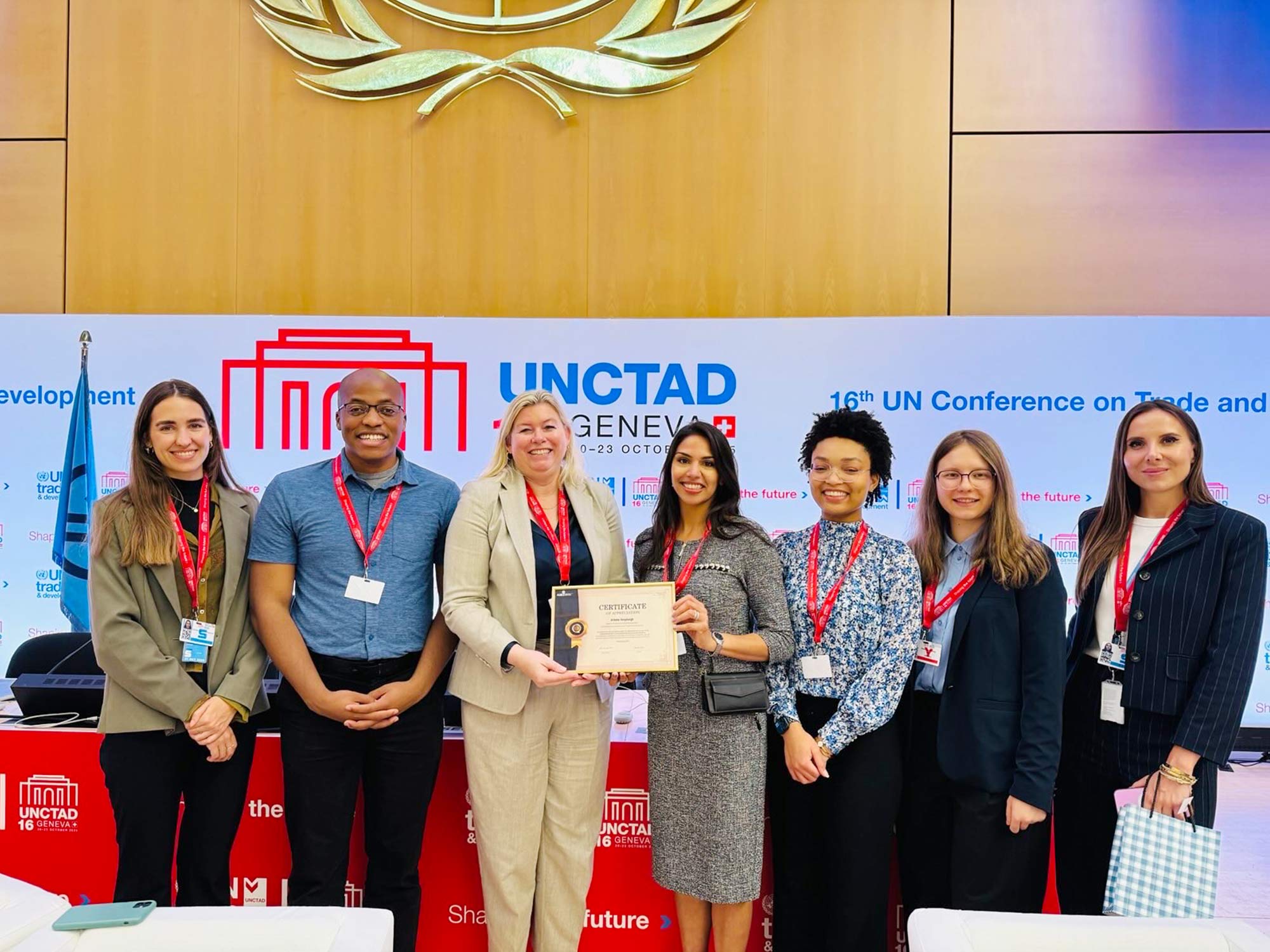
During the appreciation ceremony, UNCTAD Vice President H.E. Dr. Mohammadou Kah was formally appointed as an ASEZ Advisory Committee Member.
He stated, “I believe that the interest and involvement of young people in sustainable development, climate action, environmental protection, and crime prevention will resonate deeply with the goals that both I and The Gambia seek to achieve. There are many young people in The Gambia and across Africa, and I would like to introduce ASEZ to them.” He also pledged strong support to ensure that ASEZ young adults can play an even greater role in the UNCTAD Youth Network and in various UN collaborative initiatives moving forward.
This moment symbolizes that, at the center of the UN’s trade and development agenda, ASEZ is being recognized not merely as a participant but as a trusted and reliable cooperation partner.
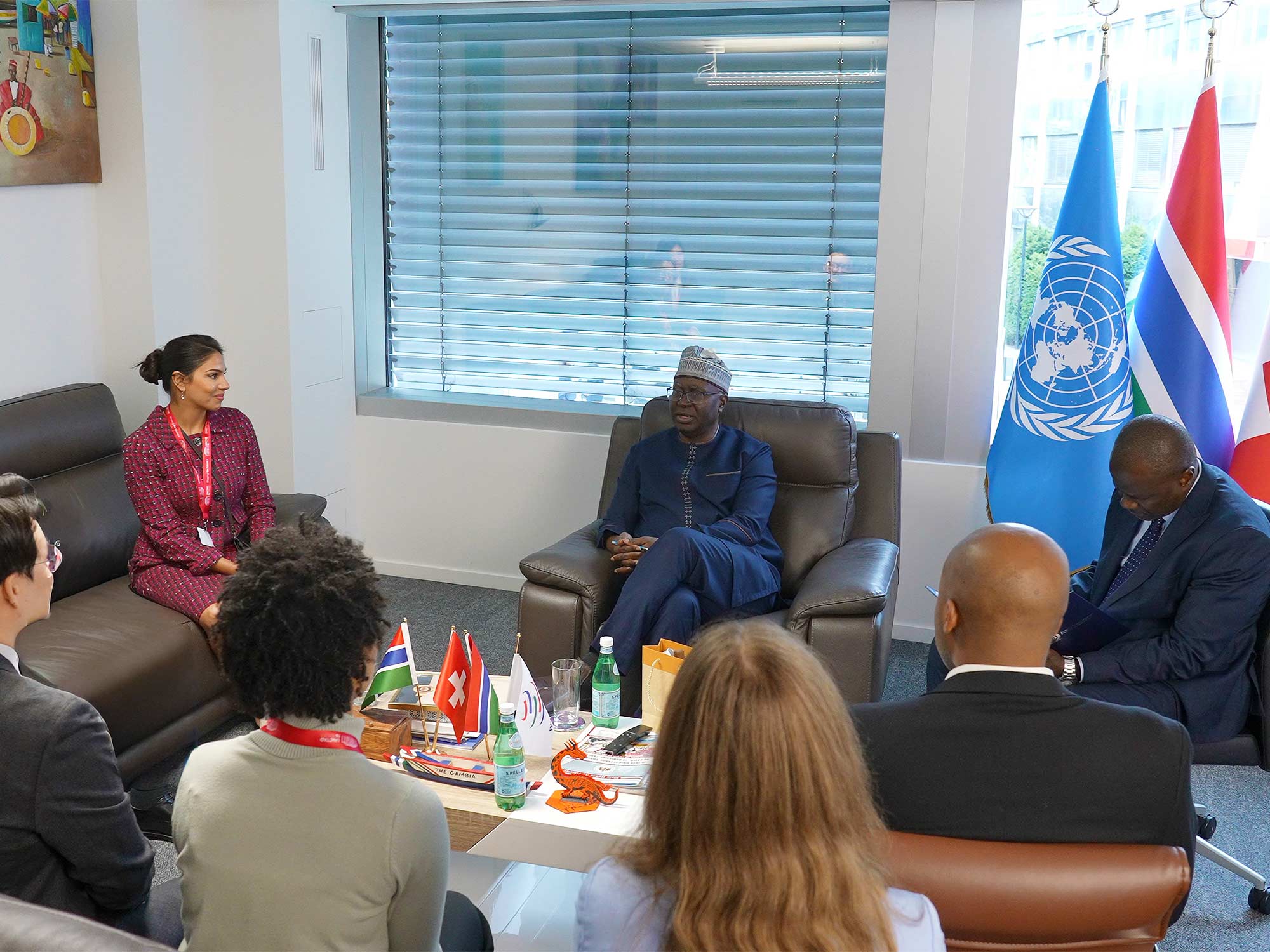
Going forward, ASEZ plans to expand its collaboration with UNCTAD, national governments, and international organizations across a wide range of fields—including combating plastic pollution, addressing the climate crisis, advancing crime prevention and character education, and strengthening community resilience.
In addition to continuous on-the-ground activities on campuses and in local communities, ASEZ will keep moving forward on the international stage. Through strategic partnerships, they aim to amplify the voices of university students, inspire policy and perception changes, and drive meaningful, lasting transformation.